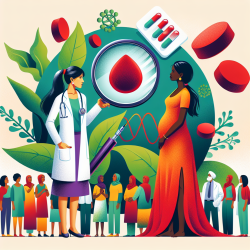Understanding Anemia and Its Impact
Anemia is a prevalent health issue in India, affecting over half of the women of reproductive age. This condition is often linked to fatigue, reduced productivity, and in severe cases, adverse birth outcomes and maternal mortality. The Indian government has long promoted iron-folic acid (IFA) supplements to combat anemia, yet uptake remains disappointingly low.
The RANI Project: A Normative Approach
The Reduction in Anemia through Normative Innovations (RANI) project aims to tackle anemia by leveraging social norms. Conducted in Odisha, India, this study uses a cluster randomized controlled trial to assess the effectiveness of a norms-based intervention in increasing IFA and iron-rich food consumption among women of reproductive age.
Key Insights for Practitioners
Practitioners can draw valuable lessons from the RANI project to enhance their approach to anemia prevention:
- Social Norms Matter: The RANI project underscores the power of social norms in influencing health behaviors. Practitioners should consider integrating social norms into their strategies to boost IFA uptake.
- Community Engagement: Engaging community members, including influential groups like mothers-in-law and husbands, can significantly impact women's health behaviors.
- Comprehensive Interventions: Addressing anemia requires multi-level interventions targeting individual, interpersonal, community, and policy levels.
Encouraging Further Research
The RANI project's innovative approach opens avenues for further research. Practitioners are encouraged to explore how social norms can be effectively integrated into other health interventions. Investigating the long-term sustainability of such interventions and their adaptability to different cultural contexts can provide deeper insights.
Conclusion
The RANI project offers a promising model for reducing anemia through a social norms-based approach. By understanding and leveraging the power of social norms, practitioners can enhance their strategies and contribute to better health outcomes for women.
To read the original research paper, please follow this link: The reduction in anemia through normative innovations (RANI) project: study protocol for a cluster randomized controlled trial in Odisha, India.










